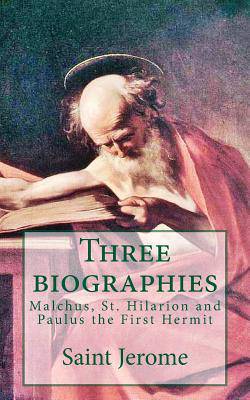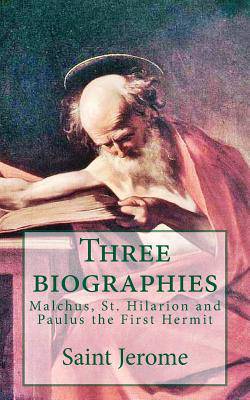
- Afhalen na 1 uur in een winkel met voorraad
- Gratis thuislevering in België vanaf € 30
- Ruim aanbod met 7 miljoen producten
- Afhalen na 1 uur in een winkel met voorraad
- Gratis thuislevering in België vanaf € 30
- Ruim aanbod met 7 miljoen producten
Zoeken
€ 17,95
+ 35 punten
Omschrijving
Saint Jerome is an ancient Latin Christian priest, confessor, theologian and historian, and who became a Doctor of the Church. Though often considered exclusively a saint of the Roman Catholic Church, Jerome was a Latin Christian who predated the East-West Schism which occurred in the 11th century. He was the son of Eusebius, of the city of Stridon, which was on the border of Dalmatia and Pannonia. He is best known for his translation of the Bible into Latin (the Vulgate), and his commentaries on the Gospel of the Hebrews. His list of writings is extensive. He is recognised by the Catholic Church, the Eastern Orthodox Church, the Lutheran Church, and the Church of England (Anglican Communion) as a saint.Jerome is commemorated on 30 September with a memorial. the Vitae Patrum (Vita Pauli primi eremitae), a biography of Saint Paul of Thebes; the Vita Malchi monachi captivi (ca. 391), probably based on an earlier work, although it purports to be derived from the oral communications of the aged ascetic Malchus originally made to him in the desert of Chalcis; the Vita Hilarionis, of the same date, containing more trustworthy historical matter than the other two, and based partly on the biography of Epiphanius and partly on oral tradition.
Specificaties
Betrokkenen
- Auteur(s):
- Uitgeverij:
Inhoud
- Aantal bladzijden:
- 94
- Taal:
- Engels
Eigenschappen
- Productcode (EAN):
- 9781489580153
- Verschijningsdatum:
- 28/05/2013
- Uitvoering:
- Paperback
- Formaat:
- Trade paperback (VS)
- Afmetingen:
- 127 mm x 203 mm
- Gewicht:
- 99 g

Alleen bij Standaard Boekhandel
+ 35 punten op je klantenkaart van Standaard Boekhandel
Beoordelingen
We publiceren alleen reviews die voldoen aan de voorwaarden voor reviews. Bekijk onze voorwaarden voor reviews.











